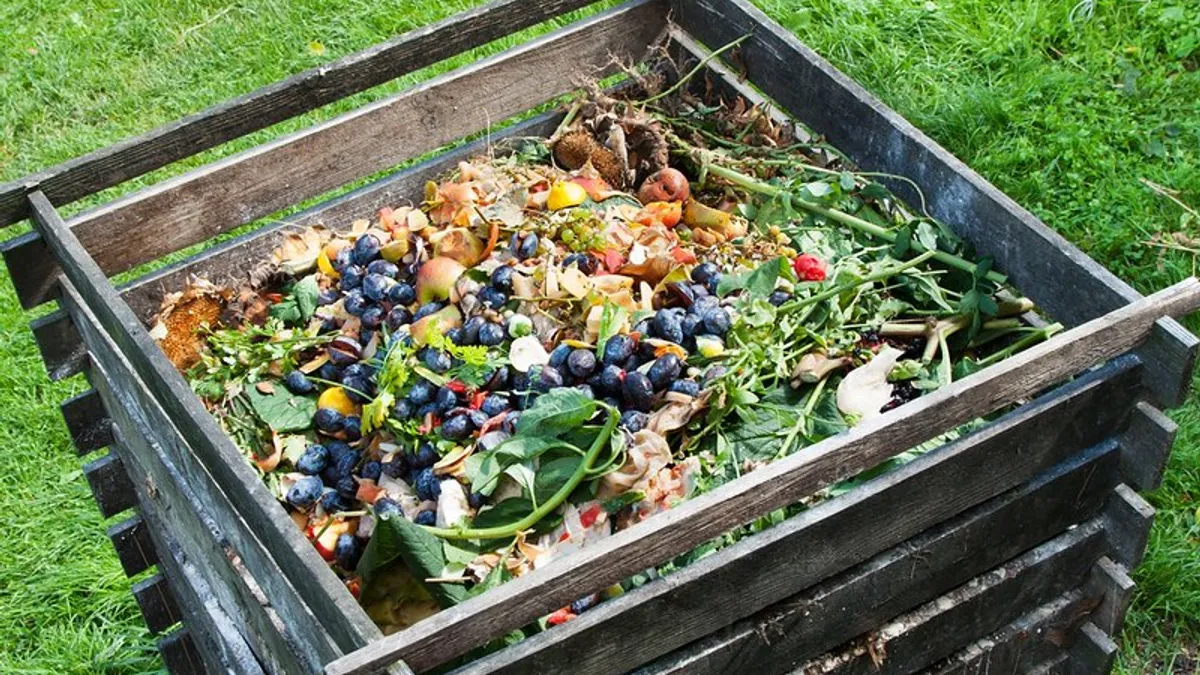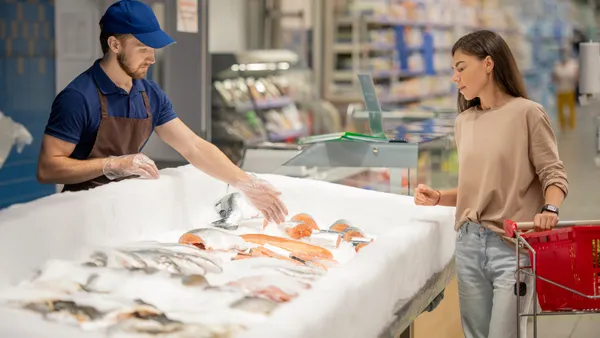Dive Brief:
- A large-scale new initiative in the Pacific Northwest aims to enlist food retailers in efforts to support a regional target of at least 50% food waste reduction and prevention by 2030. The West Coast Voluntary Agreement to Reduce Wasted Food is led by the Pacific Coast Collaborative (PCC) and has support from grocery companies like Albertsons and Kroger, while Sprouts Farmers Markets is a new signatory.
- The food waste agreement is anchored by ReFED, the World Wildlife Foundation (WWF), and the Waste and Resources Action Programme (WRAP). PCC announced its food waste reduction target in 2018 and the new voluntary effort is meant to bolster progress towards the end-of-decade deadline, the same target established by the U.S. EPA.
- The agreement will assist ongoing state efforts as well as non-governmental initiatives. ReFED Director of Stakeholder Engagement Jackie Suggitt said it aligns with pre-existing goals on a local, national and global scale. "This project is intended to support these existing goals through public-private partnerships, measurement and on-the-ground collaboration on food waste reduction solutions," she said.
Dive Insight:
The new food waste initiative is the latest project launched by PCC, a West Coast partnership between the states of California, Oregon and Washington, along with the province of British Columbia, Canada. The cities of Vancouver, British Columbia, and Seattle, San Francisco, Los Angeles, and Portland, Oregon, are also involved as is Oakland, California.
Those committing to the agreement will submit an annual "food waste report" in accordance with a measurement framework they will create. They will also partake in collaborative working groups to share best practices, in addition to holding facilitated meetings and prioritizing local engagement. PCC members are calling on food retailers and manufacturers to join, as well as their supply chain partners.
The agreement is intended to serve as a mechanism for catalyzing help and support, as many jurisdictions and food business suppliers have established significant food waste reduction goals and are now seeking to meet them. Suggitt said ReFED, WWF and WRAP will serve predominately in an assisting capacity, streamlining progress measurement and reporting for partners to align with efforts nationally and globally.
"By signing on to this voluntary agreement, these partners are agreeing to work together collaboratively along the West Coast to ensure the region meets that 2030 goal," Suggitt said.
Signatories say the agreement is key to combating climate change and other environmental issues jurisdictions are tackling. Los Angeles, for example, is seeking to eliminate organics disposal to landfills by 2028, with the end goal of sending "zero waste" to landfill by 2050.
Enrique Zaldivar, director and general manager for the Los Angeles Department of Sanitation, said via email the major focus of the new initiative right now is reaching out to grocery retailers, who will share their food waste and recovery data with the collective. The intent is for those conversations to help lay the groundwork as the state seeks to meet its timeline.
Albertsons and Sprouts Farmers Markets emphasized sustainability and the potential for group collaboration to help different stakeholders reach their goals.
"We are always working to reduce food waste and identify opportunities to get food to people in need in our communities,” said Darcie Renn, Director of Sustainability at Albertsons, in a statement.
Grocers have expanded food waste reduction efforts in recent years as they look to save money and bolster their image as corporate stewards. Kroger aims to become a "zero waste" company by 2025 through a range of different initiatives, while other companies have employed technology like artificial intelligence and strategic pricing programs.
Some signatories of the PCC agreement will be working together to address the barriers to food waste reduction COVID-19 has highlighted, including business closures and disruptions to the supply chain.
"Once the PCC has achieved success with the grocery store markets, they will move into other food generating industries like hospitality," said Zaldivar.













